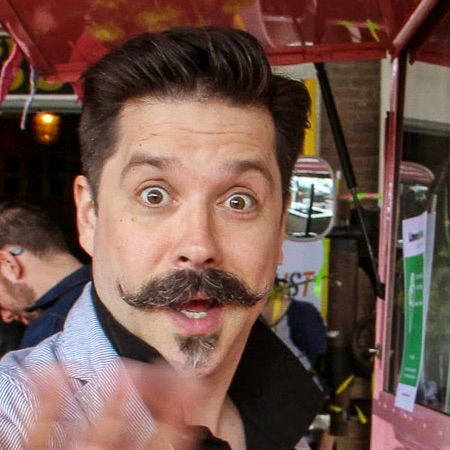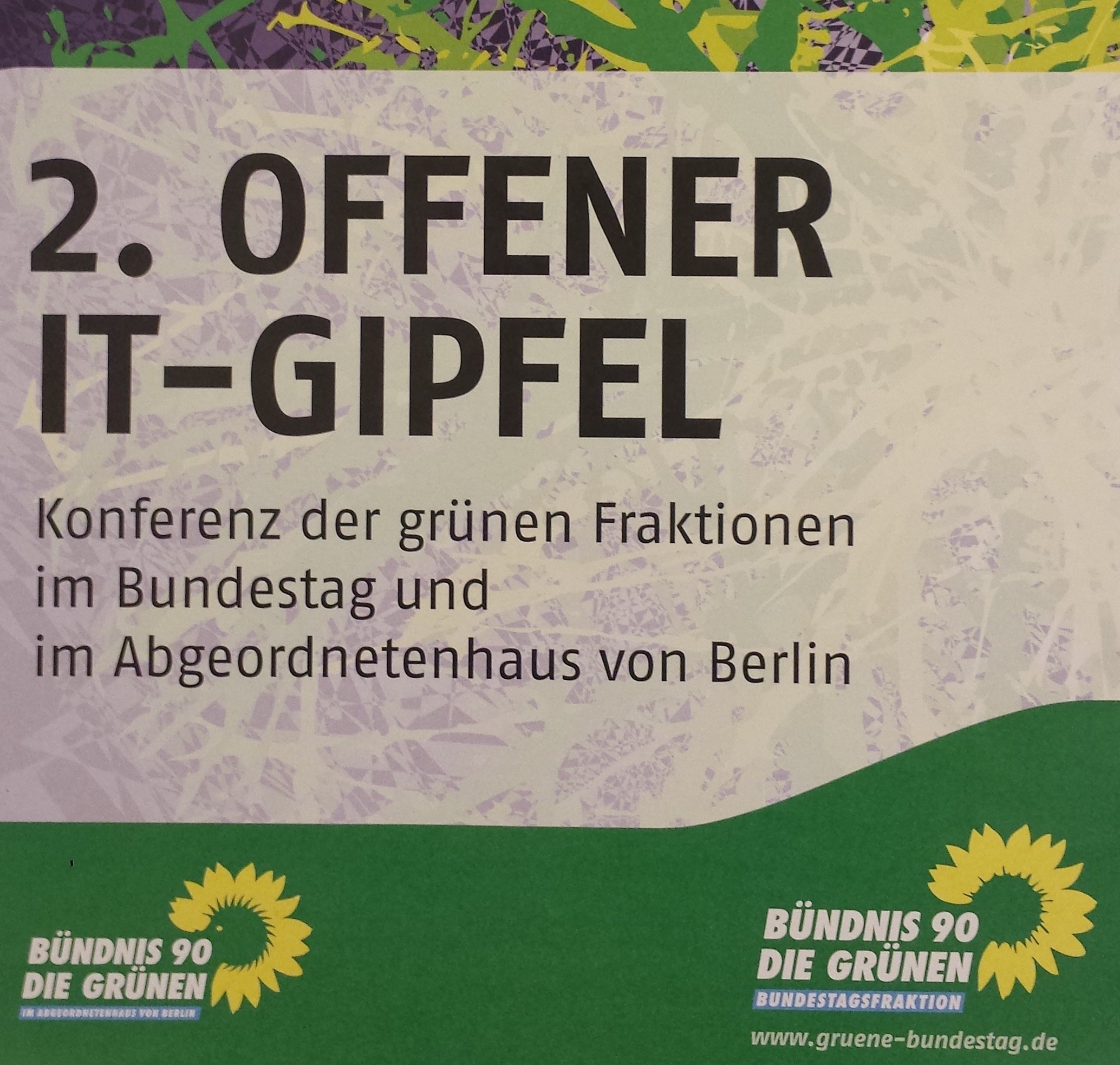The German opposition Green Party’s Economic Spokesperson and Member of Parliament, Dieter Janacek invited me to be a panelist at the 2nd Open IT Summit (Offene IT-Gipfel) at the Berlin House of Representatives. It was held on November 18th, 2015, one day before–and as a contrast to–the German government’s National IT Summit and its goal was “to bring openness to the core of the political debate about the digitalisation of society and the economy.” For me, the day was full of learning, expanding my horizons, and meeting new people. Highlights included finally getting to meet several representatives from the German Open Source Business Alliance, with whom I have many open conversations to finish :-) and Markus Feilner from SUSE.
##My panel discussion
I was a panelist in a workshop entitled “Open economy–open standards for digital innovation” moderated by MP Dieter Janacek. My fellow panelists were Prof. Dirk Riehle, Professor for Open-Source-Software at the Friedrich-Alexander-Universität Erlangen-Nürnberg and Lars Zimmermann, Open Source Economist from the Open.it Agency.
Open Source senkt Markteintrittsbarrieren. So geht Innovationsförderung! #2OITG pic.twitter.com/U0LW37HiWU
— Dieter Janecek (@DJanecek) November 18, 2015I found Prof. Riehle’s analysis and front-line experience with startups and open source business models valuable. He underscored my contention that open source is a powerful risk mitigation tool, pointing out that large companies are facing the need to remove as many proprietary (read “closed and therefore untrustworthy”) elements from their products as possible to retain sales credibility in non-US markets.
Lars Zimmermann’s talk about open source hardware’s place in a less wasteful, circular economy reinforced my belief that transparency is one of the most powerful parts of the open source equation. For example, only with complete and transparent labeling, combined with laws that permit it, can we truly recycle all the different the materials in our consumer goods and make new ones.
Thanks again Aral Balkan, for sharing this gem with me a while back. I quote it a lot:
»Ehrlichkeit ist der einzige Weg für Transparenz. If I have to say 'trust me', don't trust me. Darum OpenSource.« – @HornCologne #2oitg
— Sarina Balkhausen (@sarinabeta) November 18, 2015##Initial thoughts
What I managed to take in from the 2nd Open IT Summit–multi-track conferences always make it so hard to choose what to see and hear–led me to thinking about idealism again over the last few days. It’s an area that is key to my understanding of how successful open source and community software work. I know most of us in Drupal and free and open source technologies come from idealistic backgrounds of one kind or another. It is probably fair to say, most politicians and those involved in government in one way or another do, too.
The power of open source “do-ocracies” came up during the day. The freedom that allows anyone using open source to build and improve open source, too. This is a super power. Politicians must need incredible reserves of patience and stamina to keep their good ideas and goals in mind and to fight for them through years of gaining seniority and influence. And it still seems to be a matter of being in the right party at the right time (whether in government or opposition) to make a difference in the end.
Open source practitioners, on the other hand, can often make a difference in a relatively short time (Drupal 8’s 5-year development cycle being something of an exception). During the “Open Office” workshop held by LibreOffice and Document Foundation members, I realized that we can even make a difference to those organisations–governments being a prime example–that may not be able to make effective, quick changes themselves.
We can make a difference because we are free to share what we do, improve the tools at everyone’s disposal, offer lower barriers to entry for better tools … plus guarantee transparency and auditability, all while reacting faster to security problems, continuously innovating and much more without having to wait or ask for permission.
comments powered by Disqus
